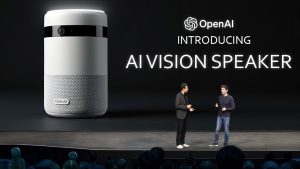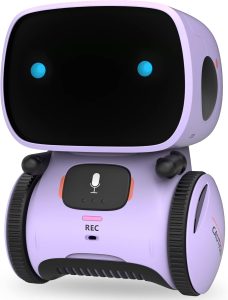Unveiling the Future of AI: Effortless Prompt Engineering

Prompt engineering has become a pivotal role within the AI sector, revolutionizing how applications understand and respond to human input. As this field grows, new tools are emerging that simplify and enhance the process.
The advent of technologies like Claude 3.5 Sonnet from Anthropic is transforming traditional approaches by automating aspects of prompt engineering. This innovation not only accelerates the development of AI applications but also makes them more accessible to a wider array of developers, sparking a new era in AI interaction.
Revolutionizing AI Development with Automated Prompt Engineering
In the bustling world of artificial intelligence, the job of prompt engineering has rapidly gained prominence. Traditionally, crafting effective prompts required meticulous human effort, often demanding specialized skills. However, advancements by Anthropic have introduced a landmark innovation—Claude 3.5 Sonnet. This advanced tool streamlines the prompt engineering process, enabling developers to generate, test, and refine prompts effortlessly. Through intuitive interfaces and powerful automation, developers can now enhance the responsiveness and accuracy of AI applications, marking a significant step towards more dynamic AI interactions.
The introduction of this feature simplifies the complex task of prompt engineering. Previously, developers or hired specialists would manually adjust prompts to optimize AI performance. Now, with real-time feedback and a suite of testing options, developers can rapidly iterate and improve their AI applications’ responses to user inputs. This capability not only fosters quicker enhancements but also reduces the dependency on highly specialized human input, democratizing AI development to a broader range of creators and innovators.
Enhancing developer efficiency and Creativity
With the launch of the Anthropic Console’s new ‘Evaluate’ tab, developers have been handed a powerful tool to assess the effectiveness of their AI application prompts. By allowing the uploading of real-world examples or generating AI-created test cases, the platform offers a granular view of how different prompts perform under varied scenarios. This depth of analysis is pivotal in fine-tuning applications to meet user needs more accurately.
This platform not only aims to evaluate but also to inspire. By providing a prompt generator that leverages Anthropic’s pioneering techniques, it encourages developers to explore creative avenues without the steep learning curve traditionally associated with this intricate field. Whether a novice or an experienced programmer, the console serves as a fertile ground for innovation, allowing for prompt modifications that can significantly alter application outcomes, thus enhancing user engagement and satisfaction.
Real-World Impact and Future Prospects
Practical applications of these enhancements were directly observed when a developer utilized the Anthropic platform to refine an AI application. They noticed that the application was delivering excessively brief responses across several scenarios. Armed with the new tools, they adjusted a key line in their prompt, effectively and uniformly extending the response length across all test cases.
Such improvements not only save valuable development time but also improve the overall quality of AI interactions. The ability for real-time adjustments and immediate application reflects the agility and responsiveness that modern developers demand from their tools. This not only enhances the practical usability of AI in everyday applications but also opens up new possibilities for businesses to integrate more sophisticated AI features into their offerings.
Looking ahead, while the tools developed by Anthropic are transformative, they don’t eliminate the need for human ingenuity—they augment it. The company’s CEO, Dario Amodei, highlights the ongoing importance of human expertise in achieving optimal AI performance. This blend of automated processes and human oversight is predicted to be crucial for the widespread adoption of generative AI technologies in enterprise settings.
Shifting Landscapes in Artificial Intelligence
The arrival of tools like Claude 3.5 Sonnet represents more than just technological advancement; it signals a shift in the landscape of AI development. By automating one of the most tedious aspects of AI application creation, Anthropic is setting a new standard for efficiency and accessibility in the tech industry.
Bridging Gaps Between Novices and Experts
Anthropic’s latest developments are not just about advancing technology but also about making it accessible. The tools are designed not only to serve experienced engineers but also to assist those new to the field. This inclusivity is crucial as it lowers the barriers to entry for AI development, allowing a wider audience to contribute to and benefit from the AI revolution.
In the rapidly evolving landscape of artificial intelligence, tools like Claude 3.5 Sonnet by Anthropic are playing a pivotal role in simplifying complex processes like prompt engineering. This not only accelerates development cycles but also democratizes AI accessibility, enabling both novices and seasoned developers to innovate more effectively. The future of AI application development appears increasingly automated, promising to enhance user experiences while still valuing vital human expertise.
As AI continues to transform various sectors, the integration of automated tools and human insight seems destined to drive significant advancements. The collaborative synergy between machine efficiency and human creativity will likely shape the next generation of AI technologies, ensuring they are more intuitive, responsive, and beneficial for a broader audience.





